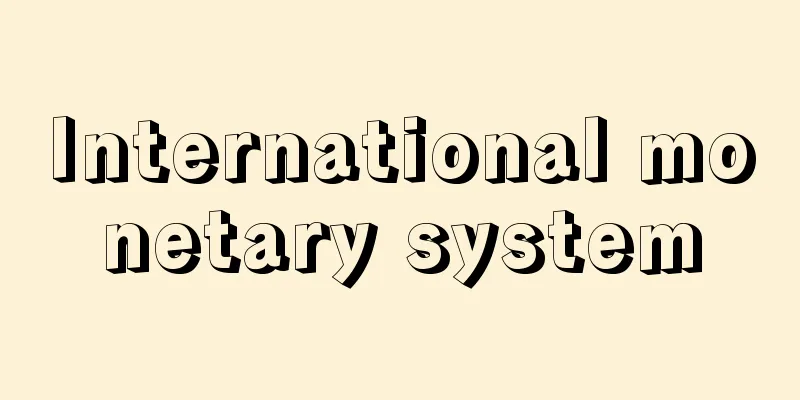International monetary system

|
A general term for the monetary system of the international economy, specifically foreign exchange transactions and international balance of payments adjustments. The international monetary system was based on the gold standard from the late 19th century until World War I, after which it shifted to a gold exchange standard. After World War II, a fixed exchange rate system with the US dollar as the key currency under the International Monetary Fund (IMF) system continued, but after the US dollar was no longer convertible into gold in 1971, it has been a floating exchange rate system. Source: Encyclopaedia Britannica Concise Encyclopedia About Encyclopaedia Britannica Concise Encyclopedia Information |
|
国際経済の通貨面,具体的には外国為替の取引,国際収支の調整など通貨に関する制度の総称。 19世紀後半から第1次世界大戦までの国際通貨制度は金本位制度であり,その後金為替本位制度に移行。第2次世界大戦後は国際通貨基金 IMF体制による米ドルを基軸通貨とする固定為替相場制度が続いたが,1971年の米ドルの金交換停止後は変動為替相場制度となっている。
出典 ブリタニカ国際大百科事典 小項目事典ブリタニカ国際大百科事典 小項目事典について 情報 |
<<: International telecommunication
>>: International Geographical Union (IGU)
Recommend
Kaminaga Ryougetsu - Kaminaga Ryougetsu
…Enka began to change from hard-line to soft-line...
Kaisen
A county in the northern part of South Pyongan Pro...
prakaraṇa (English spelling) prakarana
… [Type of play] There are ten rūpakas (forms) of...
Sitwell, E.
…As a prominent figure in British literary and so...
Tate Gallery
The National Gallery is located on the River Thame...
Voltameter
...An instrument that determines the quantity of ...
Denzo Inoue - Denzo Inoue
A Meiji era liberal and civil rights activist. A ...
Canterbury Plains - Canterbury Heiya (English spelling)
The largest plain on the east coast of the central...
Joint litigation - Kyodo Sosho Sanka
The joining of a third party as a co-plaintiff or ...
Lamprothamnium succinctum (English spelling)
... There are six species of freshwater algae tha...
Kuzu fauna - Kuzu fauna
A general term for a group of fossil vertebrates f...
Irish harp
…It was once actively used at the Paris Conservat...
Efferent nerve
This refers to the nerves that transmit nerve exc...
Serum
The collected blood will clot after a few minutes...
Asir - Asir (English spelling)
A state in southwestern Saudi Arabia, the Asir Mou...









